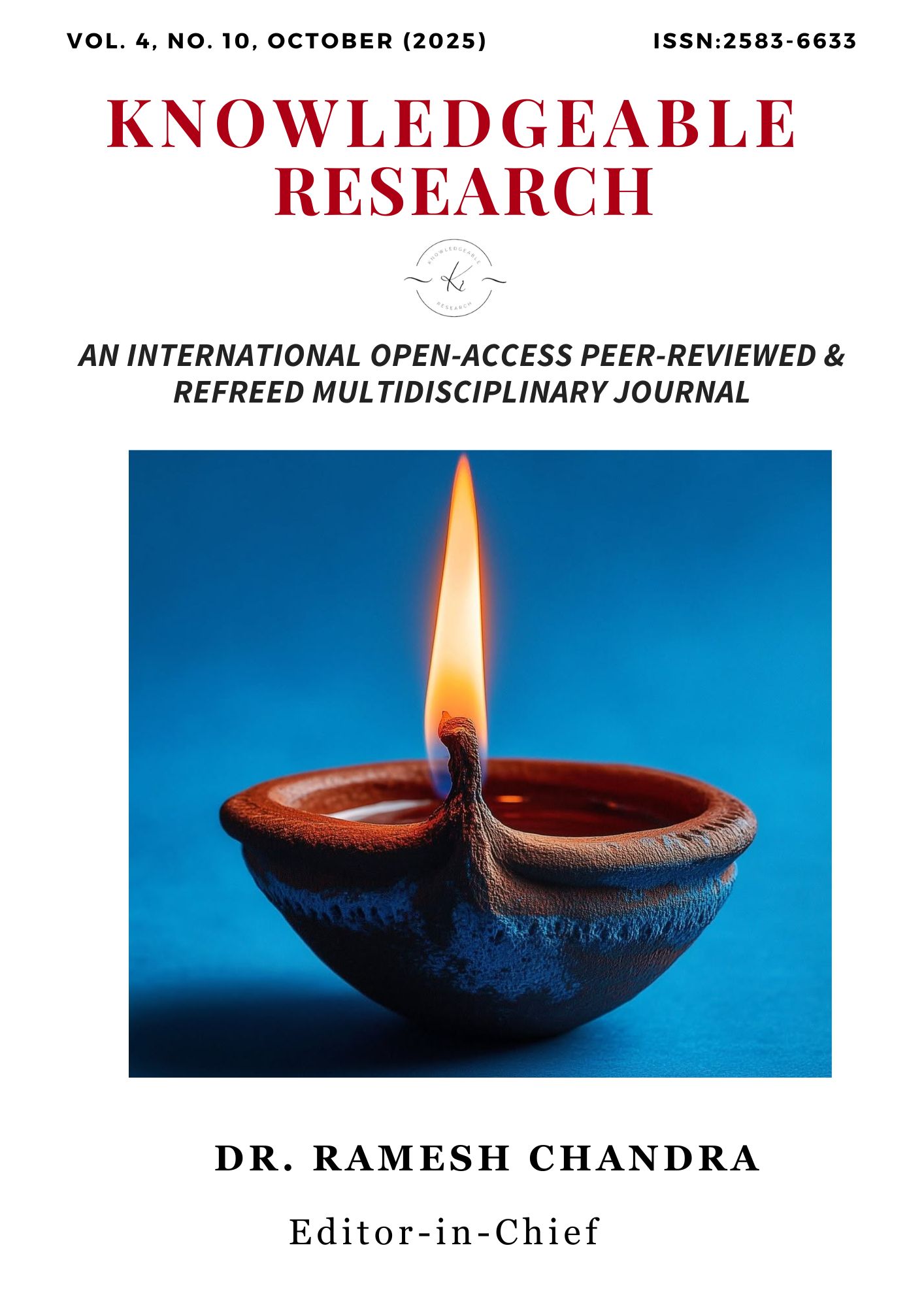Ancient Indian Knowledge Tradition, Colonialism, Globalization and Challenges: A Study
Main Article Content
Abstract
India's ancient traditional knowledge system is unique and inimitable, and it remains relevant at any time. The Indian knowledge system has a rich and storied history. Ancient Indian knowledge and education systems were firmly grounded in a vision for human well-being. The Indian knowledge system is a vibrant, evolving tradition that has continually adapted to different historical eras while maintaining its original principles. Efforts are currently underway to integrate this ancient knowledge with contemporary education. This will help us improve our efforts to enhance human well-being and build an equitable society. Therefore, there is a renewed need to analyze the nature and history of knowledge, philosophy, and values related to human well-being. India is the land where the hopes and aspirations of humanity have always been nurtured. Science, medicine, logic, philosophy, religion, and astronomy can all trace their roots to India. India is often referred to by epithets such as "the cradle of human civilization," "the mother of speech," "the grandmother of stories and customs," and so on. Many civilizations and cultures once reached their peak, but eventually declined. Despite this, Indian culture remains the oldest surviving culture in the world, because the foundation of Indian culture or civilization is knowledge. Our Indian culture is rich in knowledge. British colonialism destroyed traditional Indian education systems. They replaced indigenous languages with English and introduced Western curricula. This led to the decline of traditional knowledge. The colonial education system prioritized Western knowledge at the expense of indigenous knowledge. This created a divide between traditional and modern education, leading to a loss of trust in indigenous systems. The imposition of Western values and norms eroded various unique aspects of India's cultural identity and created a hierarchy between Western scientific knowledge and indigenous systems.
Downloads
Article Details
Section

This work is licensed under a Creative Commons Attribution-NonCommercial 4.0 International License.

